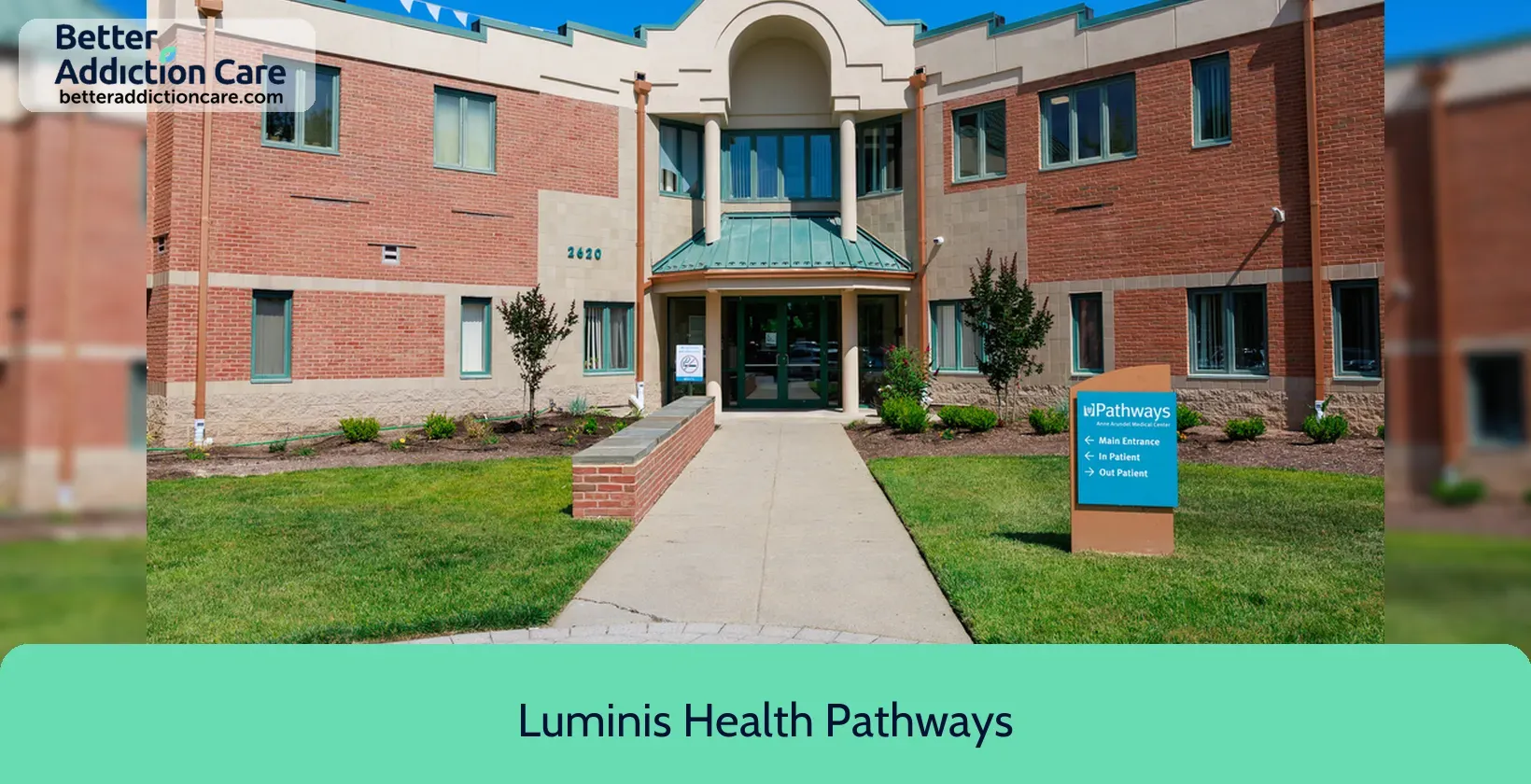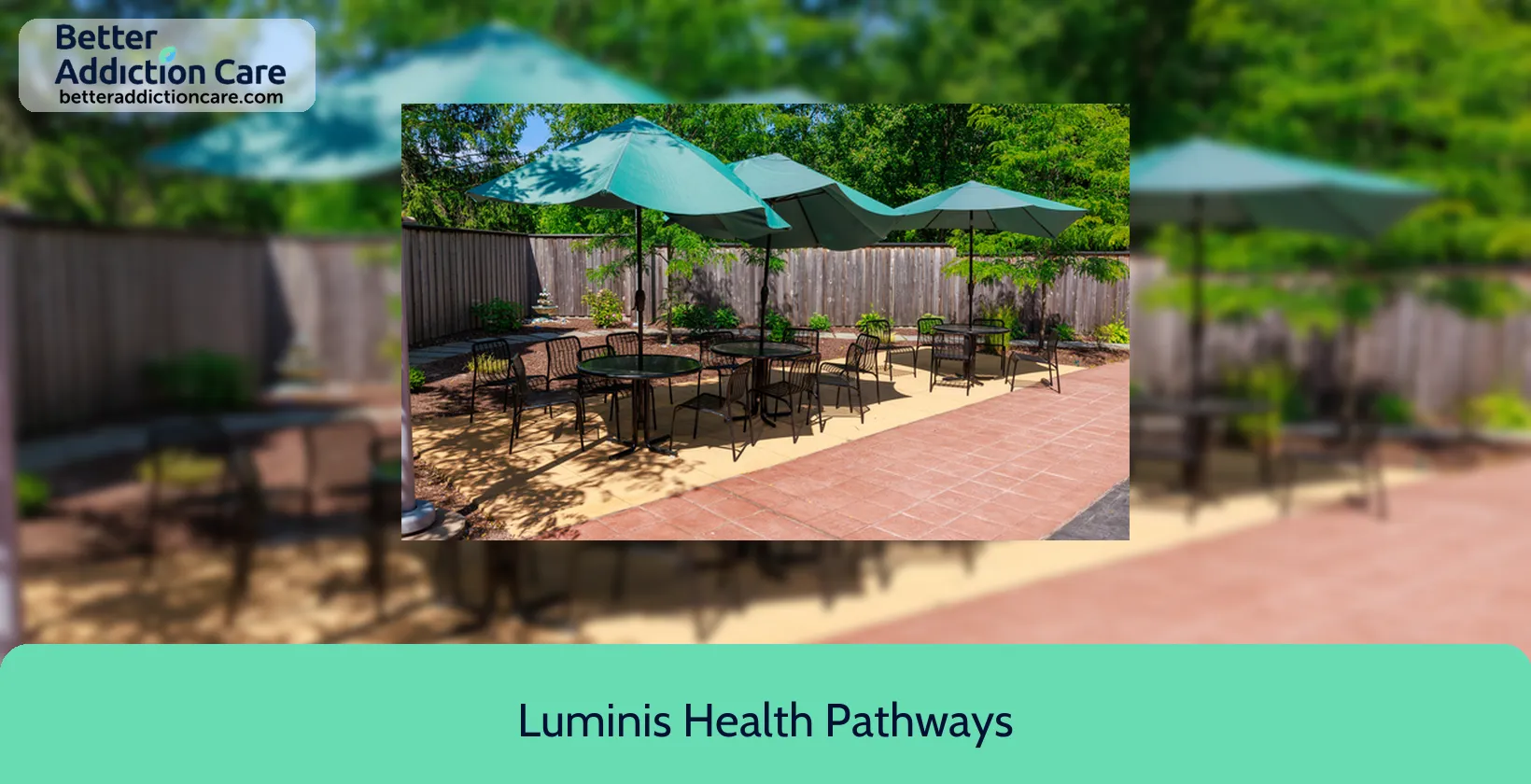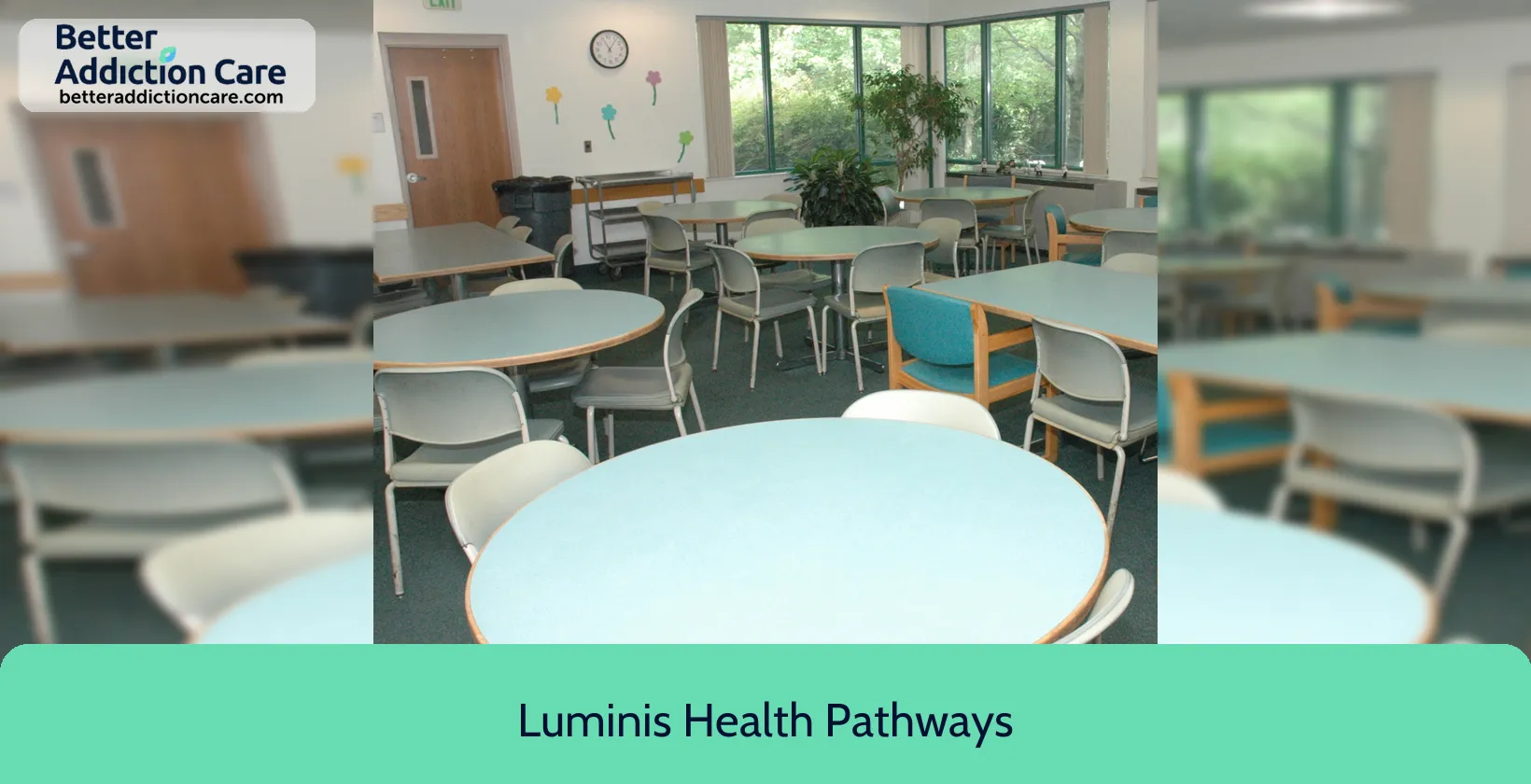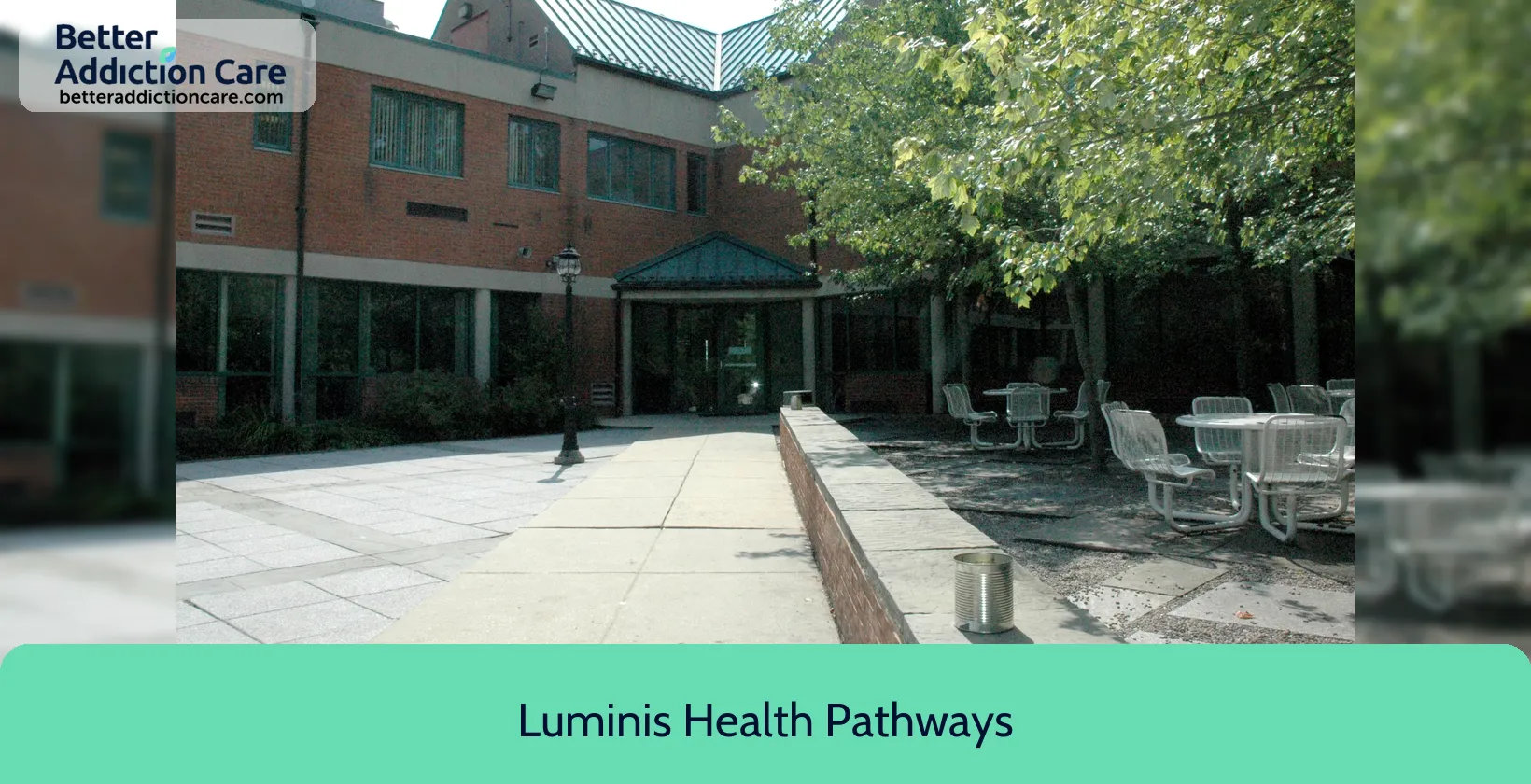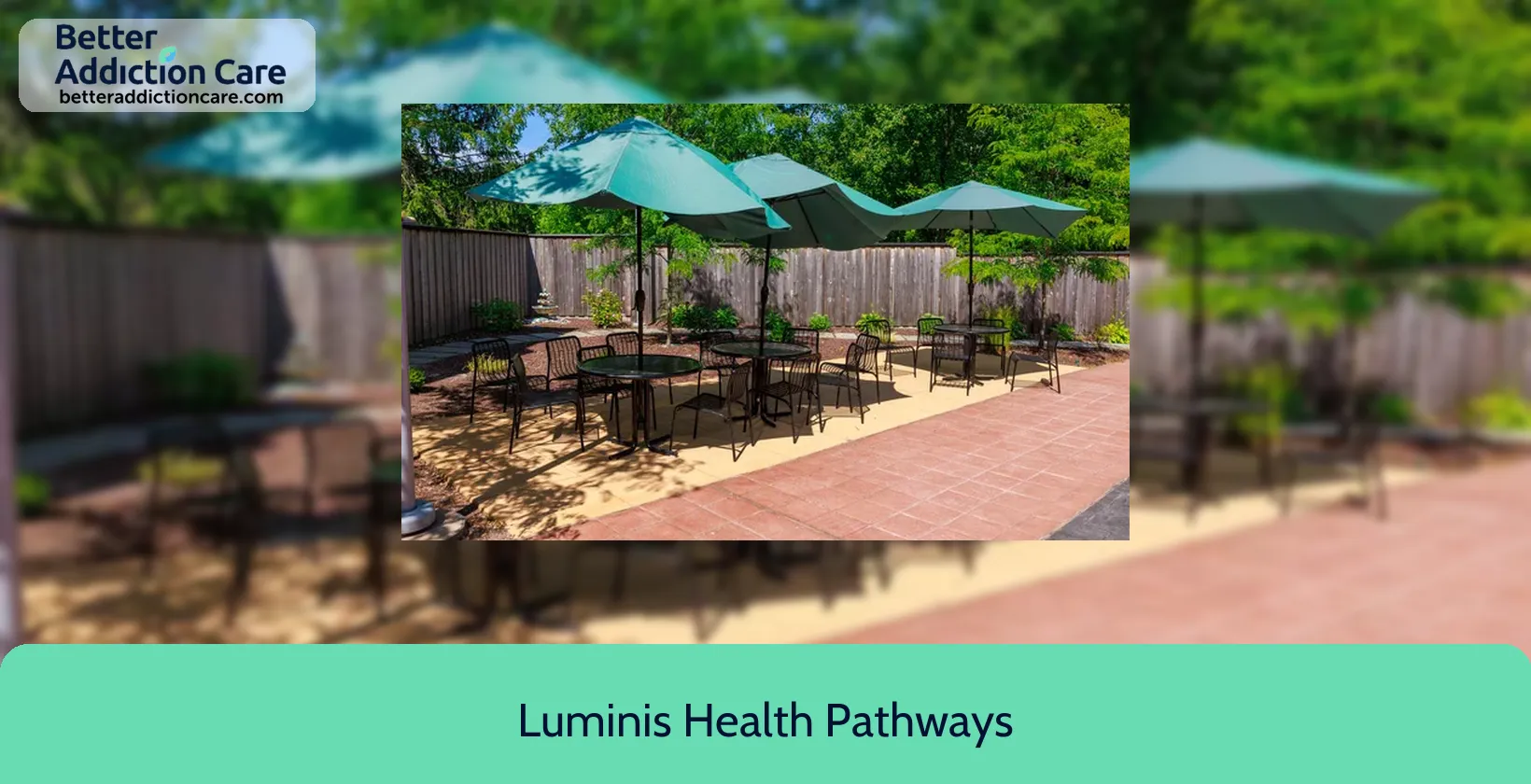Luminis Health Pathways
Overview
Founded in 1992, Luminis Health Pathways is a not-for-profit facility located in Annapolis, Maryland, dedicated to providing comprehensive alcohol, drug, and mental health care for adults. The facility operates Monday through Friday from 8:00 AM to 4:30 PM.
Luminis Health Pathways offers a wide range of services, including inpatient and residential detoxification, an Intensive Outpatient Program (IOP), dual diagnosis counseling, and outpatient therapy for mental health. The duration of treatment is personalized to meet the unique needs of each patient. The facility features separate wings for men and women, and provides access to amenities such as a gym and cafeteria.
During the inpatient program, individuals receive 24-hour monitored detoxification if necessary, along with continuous supervision by a multidisciplinary team. Patients also participate in group counseling sessions and 12-step group meetings. Additionally, the facility offers adventure groups as part of its treatment modality, utilizing team exercises and obstacle courses to build self-confidence and foster personal growth.
Luminis Health Pathways is committed to providing holistic and individualized care, ensuring that each patient receives the support needed for successful recovery.
Luminis Health Pathways holds accreditation from The Joint Commission, underscoring its commitment to maintaining the highest standards of patient care and safety.
Luminis Health Pathways at a Glance
Payment Options
- Cash or self-payment
- Medicaid
- Private health insurance
- Federal military insurance (e.g., TRICARE)
- Daily
Assessments
- Screening for tobacco use
- Comprehensive mental health assessment
- Comprehensive substance use assessment
- Interim services for clients
- Outreach to persons in the community
Age Groups
- Seniors or older adults
- Children/adolescents
- Seniors
- Young adults
Ancillary Services
- Case management service
- Integrated primary care services
- Suicide prevention services
- Specially designed program for DUI/DWI clients
- Domestic violence services, including family or partner
Highlights About Luminis Health Pathways
7.86/10
With an overall rating of 7.86/10, this facility has following balanced range of services. Alcohol Rehabilitation: 8.00/10, Drug Rehab and Detox: 8.77/10, Insurance and Payments: 6.00/10, Treatment Options: 8.67/10.-
Drug Rehab and Detox 8.77
-
Treatment Options 8.67
-
Alcohol Rehabilitation 8.00
-
Insurance and Payments 6.00
Accreditations
State department of health:

Government agencies issue State Licenses, granting permission to rehabilitation organizations to conduct their business operations lawfully within specific geographic regions. Generally, the particular rehabilitation programs offered by a facility and its physical location dictate the necessary licenses needed for legal operation.
The Joint Commission:

The Joint Commission's addiction and behavioral health accreditation signifies a facility's commitment to high-quality care. It involves rigorous evaluations and assessments of clinical practices, ensuring effective, evidence-based treatment. Accreditation showcases a dedication to continuous improvement and patient safety, instilling trust among patients, families, and healthcare professionals. It's a mark of excellence in addiction and behavioral health care.
Effective date: 09/09/2016
Registration: 1954
NAATP:

The National Association of Addiction Treatment Providers (NAATP) accreditation for addiction and behavioral health is a recognized and respected certification that signifies a treatment center's commitment to delivering high-quality services in the field of addiction and behavioral health. It serves as an assurance of compliance with industry standards and best practices, ensuring that individuals seeking help receive effective and ethical care. Accreditation from NAATP demonstrates a facility's dedication to maintaining rigorous standards, fostering accountability, and prioritizing the well-being and recovery of its clients.
Treatment At Luminis Health Pathways
Treatment Conditions
- 24-Hour Clinical Care
- Mental health treatment
- Alcoholism
- Substance use treatment
- Co-occurring Disorders
Care Levels
- Outpatient
- Short-term residential
- Residential detoxification
- Outpatient methadone/buprenorphine or naltrexone treatment
- Outpatient day treatment or partial hospitalization
Treatment Modalities
- Cognitive behavioral therapy
- Telemedicine/telehealth therapy
- Substance use disorder counseling
- Trauma-related counseling
- Smoking/vaping/tobacco cessation counseling
Ancillary Services
Languages
- Sign language services for the deaf and hard of hearing
Additional Services
- Pharmacotherapies administered during treatment
- Mentoring/peer support
- Breathalyzer or blood alcohol testing
Special Programs
- Clients with co-occurring mental and substance use disorders
- Criminal justice (other than DUI/DWI)/Forensic clients
- Clients who have experienced trauma
- Clients who have experienced intimate partner violence, domestic violence
- Clients with co-occurring pain and substance use disorders
Get Help Now
Common Questions About Luminis Health Pathways
Contact Information
Other Facilities in Annapolis

6.71
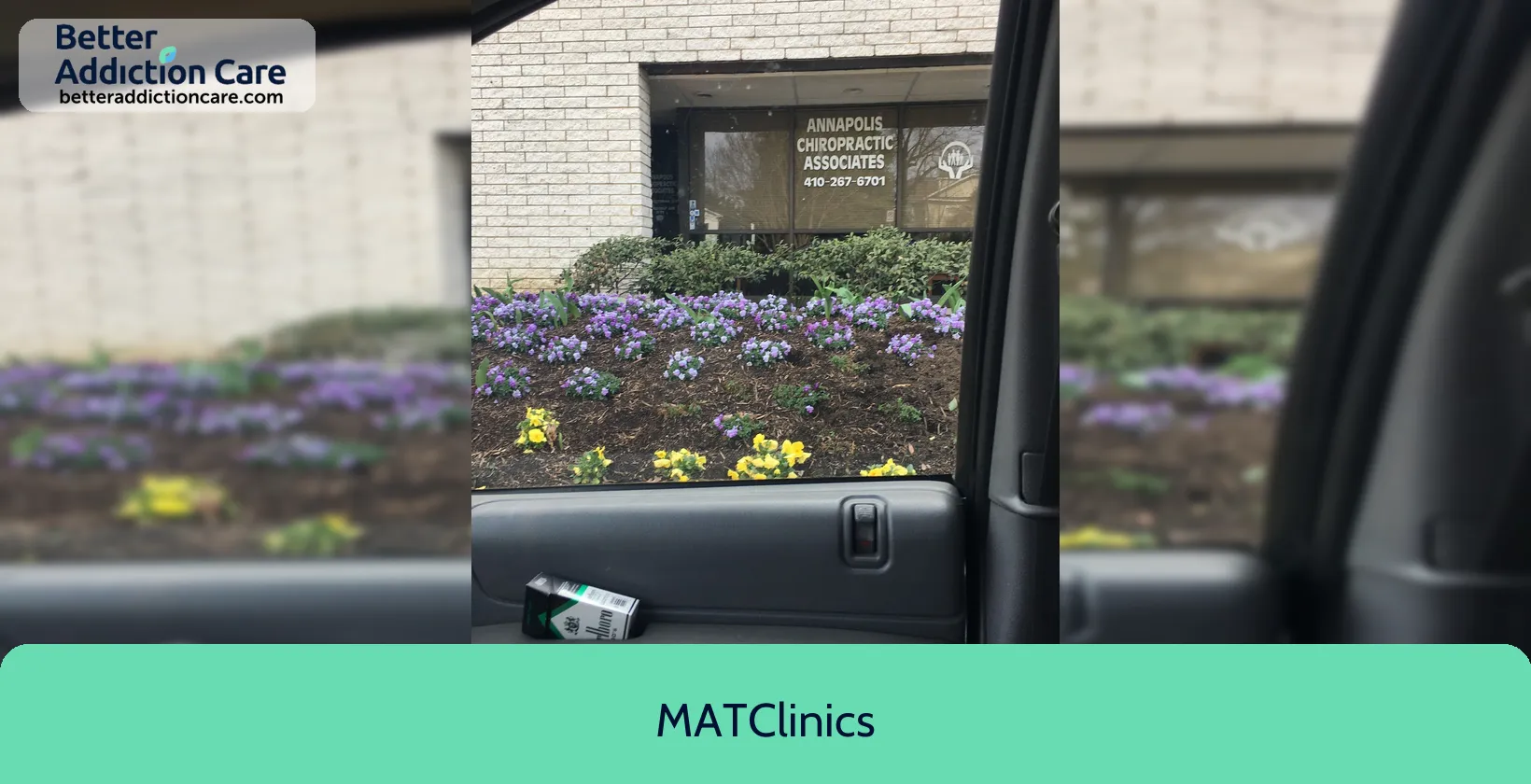
7.22
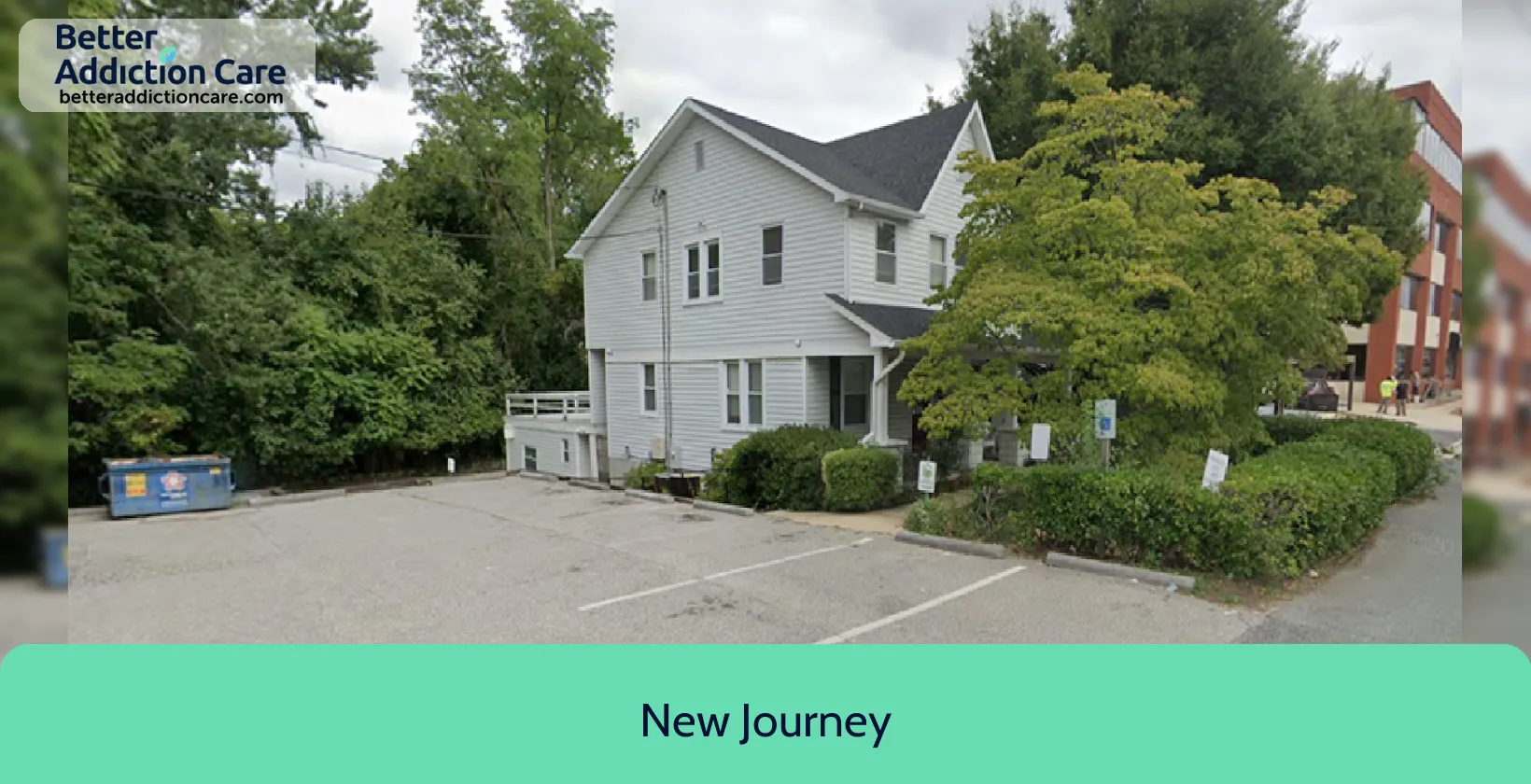
7.21
DISCLAIMER: The facility name, logo and brand are the property and registered trademarks of New Journey, and are being used for identification and informational purposes only. Use of these names, logos and brands shall not imply endorsement. BetterAddictionCare.com is not affiliated with or sponsored by New Journey.
